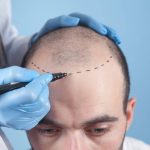Immediate Recovery After Obesity Surgery
After undergoing Obesity Surgery, the immediate recovery period begins in the hospital where patients are closely monitored. Most individuals stay between one and three days, depending on the procedure and their overall condition. During this time, pain is managed effectively, vital signs are monitored, and hydration is carefully controlled to ensure optimal recovery. Patients are encouraged to walk soon after the procedure to promote circulation and prevent complications.
In the early phase following Obesity Surgery, patients are placed on a clear liquid diet to allow the digestive system to rest and begin healing. This stage is critical to ensure a smooth transition into the next phases of recovery. Medical professionals provide guidance on wound care, physical activity, and necessary follow-up appointments. With expert support and a positive mindset, patients begin their journey toward lasting weight loss and improved well-being from the very first day.
Dietary Changes and Nutritional Guidelines
One of the most important aspects of life after Obesity Surgery is adopting a new approach to eating. Initially, patients follow a liquid diet, then gradually transition to pureed foods, soft textures, and eventually small portions of solid meals. This progression is designed to support healing and help patients adjust to their smaller stomach capacity. Meals should be nutrient-dense, high in protein, and low in sugars and fats to maximize results.
Proper hydration and vitamin supplementation are also essential after Obesity Surgery. Because nutrient absorption may be reduced, patients are advised to take daily multivitamins, calcium, vitamin D, and sometimes B12 or iron. Following the dietary plan provided by the medical team ensures continued success and long-term health. A structured nutrition program not only prevents deficiencies but also supports sustained weight loss and energy levels.
Physical Activity and Mobility After Surgery
After Obesity Surgery, physical activity plays a crucial role in recovery and overall success. Light walking is recommended within hours after the procedure to stimulate circulation and reduce the risk of complications. As healing progresses, patients gradually increase their activity levels, incorporating low-impact exercises like stretching, swimming, or cycling.
In the weeks and months following Obesity Surgery, incorporating regular exercise helps maintain muscle mass, enhance metabolism, and improve cardiovascular health. Movement also supports mental well-being and provides a natural boost in energy. Establishing a consistent routine tailored to the patient’s fitness level ensures long-term adherence and contributes significantly to maintaining weight loss and physical vitality.
Emotional Adjustments and Mental Well-Being
The emotional journey following Obesity Surgery is just as important as the physical transformation. Many patients experience a range of emotions as they adjust to their new lifestyle, eating patterns, and body image. Support from mental health professionals, family, or peer groups can make a significant difference in navigating this transition smoothly.
After Obesity Surgery, some individuals report increased self-confidence, better social interactions, and improved relationships. However, adapting to new routines may also bring emotional challenges. Structured counseling or participation in support groups offers a safe space to share experiences and receive encouragement. Prioritizing emotional health fosters long-term success and helps patients embrace their new life with resilience and positivity.
Weight Loss Progress and Health Improvements
Weight loss following Obesity Surgery is typically most rapid during the first six to twelve months. Patients may lose 50–70% of their excess weight within this period, depending on the procedure and adherence to lifestyle changes. As the body sheds weight, many obesity-related health conditions—such as type 2 diabetes, high blood pressure, and sleep apnea—often improve significantly or go into remission.
Maintaining regular check-ups ensures steady progress and allows healthcare providers to monitor key indicators like blood sugar, cholesterol, and vitamin levels. Continued success after Obesity Surgery is the result of consistent effort, professional guidance, and self-care. With each milestone, patients experience renewed energy, improved mobility, and a sense of achievement that reinforces their commitment to a healthier future.
Ongoing Medical Follow-Up and Monitoring
Regular medical follow-up is a cornerstone of post-operative care after Obesity Surgery. Scheduled visits allow the healthcare team to track weight loss, assess nutritional status, and provide timely support. Blood tests are conducted to monitor levels of essential vitamins and minerals, ensuring any deficiencies are addressed early.
Long-term care plans after Obesity Surgery include consultations with bariatric specialists, dietitians, and primary care providers. These interactions provide patients with personalized feedback and help them stay on track with their goals. Routine monitoring also promotes early detection of any concerns and reinforces the importance of commitment to a healthy lifestyle. With continued engagement, patients build a sustainable path to lasting wellness and confidence.
Building a Sustainable Lifestyle After Surgery
Achieving lasting results after Obesity Surgery depends on adopting a long-term healthy lifestyle. This includes mindful eating, regular exercise, and ongoing education about nutrition and wellness. Patients are encouraged to set realistic goals, celebrate progress, and seek support when needed. Over time, these habits become second nature and form the foundation of a fulfilling, active life.
Following Obesity Surgery, individuals gain the opportunity to reshape their relationship with food, health, and self-image. With professional support and a proactive attitude, they develop strategies for maintaining their new weight and preventing regain. A sustainable lifestyle ensures that the benefits of surgery are not only achieved but also preserved, leading to a happier and healthier future.
Conclusion
Life after Obesity Surgery is filled with transformation, growth, and opportunity. From the immediate post-operative recovery to the lifelong journey of maintaining health, each step plays a vital role in achieving success. Patients experience not only weight loss but also improved health, greater mobility, and enhanced emotional well-being.
Through personalized guidance, structured nutrition, regular activity, and emotional support, individuals thrive in their new lives. The process requires dedication, but the rewards are profound. Obesity Surgery offers a powerful path toward healing, empowering patients to reclaim control over their health and happiness. With the right mindset and continuous care, a vibrant and fulfilling future is within reach.
Frequently Asked Questions
How long is the hospital stay after obesity surgery?
Most patients stay in the hospital for 1–3 days after surgery.
When can I return to work after obesity surgery?
Many patients return to work within 2–4 weeks, depending on the procedure and recovery.
Will I need to take vitamins after surgery?
Yes, daily vitamin and mineral supplements are essential for long-term health.
How soon can I start exercising after surgery?
Light walking can begin immediately; more intensive activity follows after a few weeks.
How much weight will I lose?
Patients typically lose 50–70% of their excess weight within the first year.
Will obesity-related conditions improve?
Yes, many conditions like diabetes and hypertension improve significantly after surgery.
What kind of diet will I follow?
You’ll start with liquids, then progress to pureed and solid foods with a focus on protein.
Do I need psychological support after surgery?
Emotional support is highly beneficial and recommended for lasting success.
Is the weight loss permanent?
With proper habits and follow-up, weight loss results can be maintained long term.
How often will I need check-ups?
Regular visits are scheduled monthly in the beginning, then annually long term.












